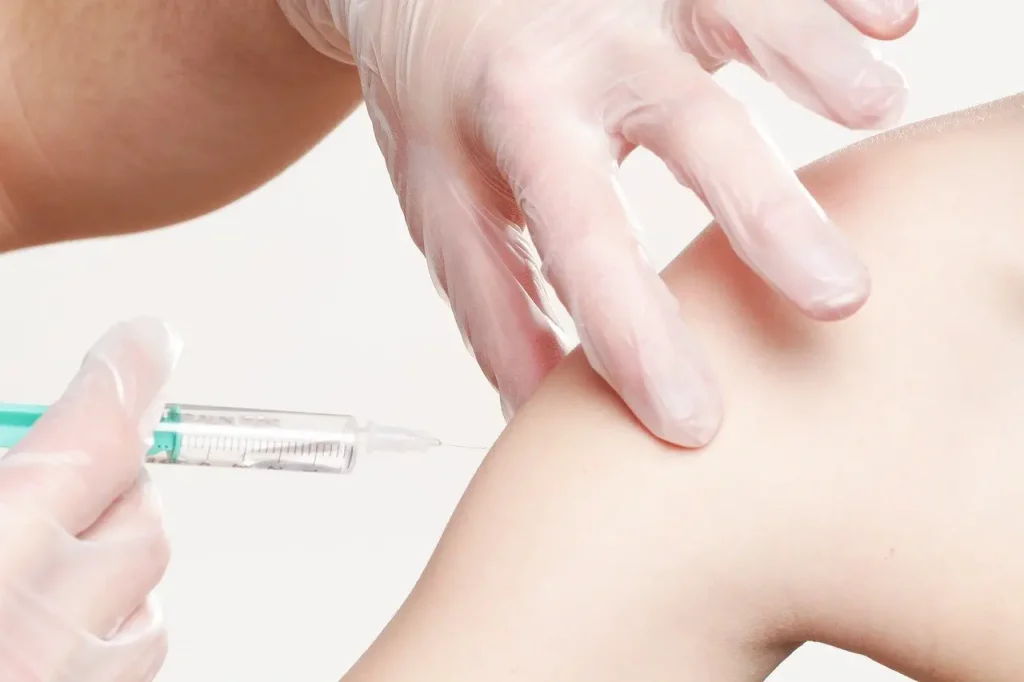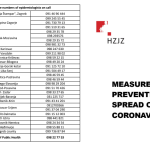When asked when they would get vaccinated if the authorities had approved a COVID-19 vaccine and if it was available, 22% of those polled in Croatia said ‘never’.
This type of answer was the most frequent in Cyprus (26%), Latvia (23%), and Croatia, Bulgaria and France (22%).
Twenty percent (20%) of Croatian respondents said they would get vaccinated as soon as possible or that they had already been vaccinated, 27% said they would get inoculated this year while 30% said they would do it later.
The share of sceptical respondents was the lowest in Denmark (2%), followed by Ireland, Sweden and Malta (4%), and Portugal (5%).
The survey was conducted in February and March and covered all 27 member states.
More than half of Croatians, 55%, are satisfied with measures taken by the EU to fight the coronavirus pandemic.
The least satisfied were respondents in Greece (31% said they were satisfied with the EU’s measures), followed by those in France (32%) and Germany (33%).
Danes were the most satisfied with the EU’s measures (68%), followed by Lithuanians (67%), and the Portuguese (66%).
Support for EMU in Croatia 48%
The European Monetary and Economic Union (EMU) with the euro as the single currency is supported by 48% of Croatians, 45% are against, and 7% said they did not know, shows the survey.
The EMU is supported the most in Portugal (95%), Slovenia (94%) and Ireland (91%). It is the least supported in Sweden (25%), Denmark (32%), Poland (34%), and the Czech Republic and Bulgaria (40%).
Eighty-seven percent (87%) of Croatians consider the economic situation in their country bad while 13% consider it good.
More dissatisfied than Croatians are Greeks and the Portuguese, of whom 90% said that the economic situation in their respective countries was bad, followed by Spaniards (91%) and Italians (93%).
The most satisfied respondents were those in Luxembourg, where 86% of those polled described the economic situation in their country as good, followed by respondents in Sweden (81%) and Denmark (71%).
EU citizens expect recovery from pandemic in 2023 or later
Only 6% of Croatians believe the national economy will recover from the consequences of the coronavirus pandemic this year, 20% think that recovery will happen in 2022, and 57% in 2023 or later.
Most of those polled in all member countries, 44-82%, believe economic recovery will happen in 2023 or later. Between 10 and 31% expect recovery next year.
Most Croatians consider the Next Generation EU recovery instrument, worth €750 billion, an effective response to the economic consequences of the crisis.
Sixty-eight percent (68%) of Croatians consider the instrument very effective or quite effective. That view is held by 83% of Maltese respondents, while on the other end are Finns (42%), the French (45%) and Latvians (47%).
Slightly more than half of Croatians, 51%, trust the EU while 44% do not.
Trust in the EU is the highest in Portugal (78%), Ireland (74%) and Lithuania (70%).
For more on coronavirus specific to Croatia, including travel, border and quarantine rules, as well as the locations of vaccination points and testing centres across the country, make sure to bookmark our dedicated COVID-19 section.









